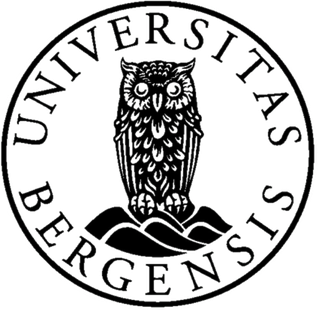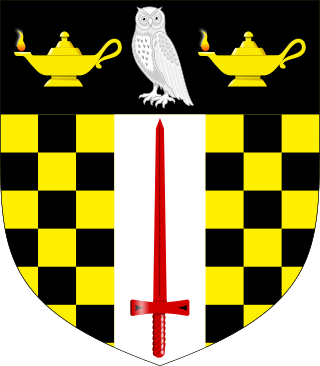
The University of Bergen is a public research university in Bergen, Norway. As of 2021, the university had over 4,000 employees and 19,000 students. It was established by an act of parliament in 1946 consolidating several scientific institutions that dated as far back as 1825. It is Norway's second-oldest university, and is considered to be one of the nation’s four so-called "established universities." It has faculties and programmes in all the academic fields typical of a classical university, as well as such degree programmes as medicine and law that, traditionally, only the “established universities” are authorized by law to offer. It is also one of Norway's leading universities in many of the natural sciences, including marine research and climate research. It has consistently been ranked in the top 200 or top one percent of universities in the world, and as one of the best 10 or best 50 universities worldwide in some fields, such as earth and marine sciences. It is part of the Coimbra Group and of the U5 group of Norway's oldest and highest-ranked universities.

Manchester Metropolitan University is located in the centre of Manchester, England. The university has 40,000 students and over 4,000 members of staff. It is home to four faculties and is one of the largest universities in the UK, measured by the size of its student population in 2020/21.

Cambridge University Press was the university press of the University of Cambridge. Granted a letters patent by King Henry VIII in 1534, it was the oldest university press in the world. Cambridge University Press merged with Cambridge Assessment to form Cambridge University Press and Assessment under Queen Elizabeth II's approval in August 2021.

The University of Manchester is a public research university in Manchester, England. The main campus is south of Manchester City Centre on Oxford Road. The university owns and operates major cultural assets such as the Manchester Museum, The Whitworth art gallery, the John Rylands Library, the Tabley House Collection and the Jodrell Bank Observatory – a UNESCO World Heritage Site. The University of Manchester is considered a red brick university, a product of the civic university movement of the late 19th century. The current University of Manchester was formed in 2004 following the merger of the University of Manchester Institute of Science and Technology (UMIST) and the Victoria University of Manchester. This followed a century of the two institutions working closely with one another.

The University of East Anglia (UEA) is a public research university in Norwich, England. Established in 1963 on a 360-acre (150-hectare) campus west of the city centre, the university has four faculties and twenty-six schools of study. It is one of five BBSRC funded research campuses with forty businesses, four independent research institutes and a teaching hospital on site.

Cranfield University is a British postgraduate-only public research university specialising in science, engineering, design, technology and management. Cranfield was founded as the College of Aeronautics (CoA) in 1946. Through the 1950s and 1960s, the development of aircraft research led to growth and diversification into other areas such as manufacturing and management, and in 1967, to the founding of the Cranfield School of Management. In 1969, the College of Aeronautics was renamed the Cranfield Institute of Technology, was incorporated by royal charter, gained degree awarding powers, and became a university. In 1993, it adopted its current name.

Birkbeck, University of London, is a public research university located in London, England, and a member institution of the University of London. Established in 1823 as the London Mechanics' Institute by its founder Joseph Clinton Robertson and its supporters Sir George Birkbeck, Jeremy Bentham, J. C. Hobhouse and Henry Brougham, Birkbeck is one of the few universities to specialise in evening higher education in the United Kingdom.
Creative writing is any writing that goes outside the bounds of normal professional, journalistic, academic, or technical forms of literature, typically identified by an emphasis on narrative craft, character development, and the use of literary tropes or with various traditions of poetry and poetics. Due to the looseness of the definition, it is possible for writing such as feature stories to be considered creative writing, even though it falls under journalism, because the content of features is specifically focused on narrative and character development. Both fictional and non-fictional works fall into this category, including such forms as novels, biographies, short stories, and poems. In the academic setting, creative writing is typically separated into fiction and poetry classes, with a focus on writing in an original style, as opposed to imitating pre-existing genres such as crime or horror. Writing for the screen and stage—screenwriting and playwriting—are often taught separately, but fit under the creative writing category as well.

The Faculty of Law, Cambridge is the law school of the University of Cambridge.

Birzeit University is a public university in the West Bank, Palestine, registered by the Palestinian Ministry of Social Affairs as a charitable organization. It is accredited by the Ministry of Higher Education and located in the outskirts of Birzeit, West Bank, near Ramallah. Established in 1924, as an elementary school for girls, Birzeit became a university in 1975.

Andrew Ross, a Scottish-born social activist and analyst, is Professor of Social and Cultural Analysis at New York University (NYU). He has authored and edited numerous books, and written for The New York Times, The Guardian, The Nation, Newsweek, and Al Jazeera. Much of his writing focuses on labor, the urban environment, and the organisation of work, from the Western world of business and high-technology to conditions of offshore labour in the Global South. Making use of social theory as well as ethnography, his writing questions the human and environmental cost of economic growth.
Elizabeth Helen Cooper,, known as Helen Cooper, is a British literary scholar. From 2004 to 2014, she was Professor of Medieval and Renaissance English at the University of Cambridge, and a fellow of Magdalene College, Cambridge.

Cambridge Judge Business School is the business school of the University of Cambridge. The School is a provider of management education. It is named after Sir Paul Judge, a founding benefactor of the school. The School is a department of the university's School of Technology administrative group.
Sir Michael James Paul Arthur FMedSci is a British academic who was the tenth provost and president of University College London between 2013 and January 2021. Arthur had previously been chairman of the Russell Group of UK universities and the vice-chancellor of the University of Leeds between September 2004 and 2013.

Western Norway University of Applied Sciences or HVL is a Norwegian public institution of higher education, established in January 2017 through the merging of formerly independent colleges across five campuses: Bergen, Førde, Haugesund, Sogndal and Stord. Its oldest programs - teacher education in Stord - can be traced to 1839. The total number of students at HVL is about 16000, and there are 1800 academic and administrative staff. Its main campus is in the Kronstad neighborhood of Bergen, Norway.
John Kerrigan, is a British literary scholar, with interests including the works of Shakespeare, Wordsworth and modern poetry since Emily Dickinson and Hopkins, along with Irish studies.

Rupert Read is an academic and a Green Party campaigner, a former spokesperson for Extinction Rebellion, and the current director of the Climate Majority Project. He is the author of several books on Wittgenstein, philosophy, and/or climate change, most recently Why Climate Breakdown Matters, Deep Adaptation: Navigating the Realities of Climate Chaos, and Do You Want to Know the Truth? Until 2023, Read was a reader in philosophy at the University of East Anglia where he was awarded – as Principal Investigator – Arts and Humanities Research Council (AHRC) funding for two projects on "natural capital". His other major recent academic focus has been on the precautionary principle, having contributed substantially to work co-authored with Nassim Nicholas Taleb on applying the principle to questions of genetic modification of organisms. In further work, Read has theorised the utility of the precautionary principle in a wide range of areas, including: climate change, the environment, as well as financial and technology sectors.
Nicholas Boyle FBA is an English literary critic. He is the emeritus Schröder Professor of German at the University of Cambridge and a fellow of Magdalene College, Cambridge. He has written widely on German literature, intellectual history and religion and is known particularly for his award-winning extensive biography of Goethe. Boyle became a fellow of the British Academy in 2000.

The University of Cambridge is a public collegiate research university in Cambridge, England. Founded in 1209, the University of Cambridge is the world's third-oldest university in continuous operation. The university's founding followed the arrival of scholars who left the University of Oxford for Cambridge after a dispute with local townspeople. The two ancient English universities, although sometimes described as rivals, share many common features and are often jointly referred to as Oxbridge.
Abdul Lateef Al Warari is a Moroccan poet and literary critic.













